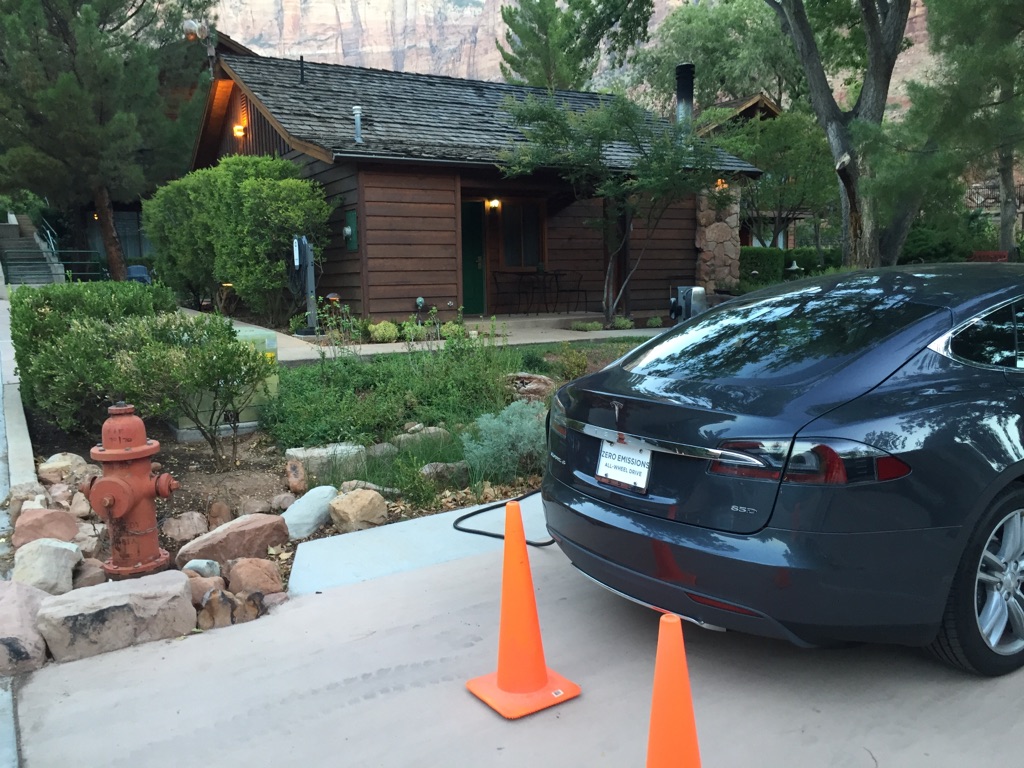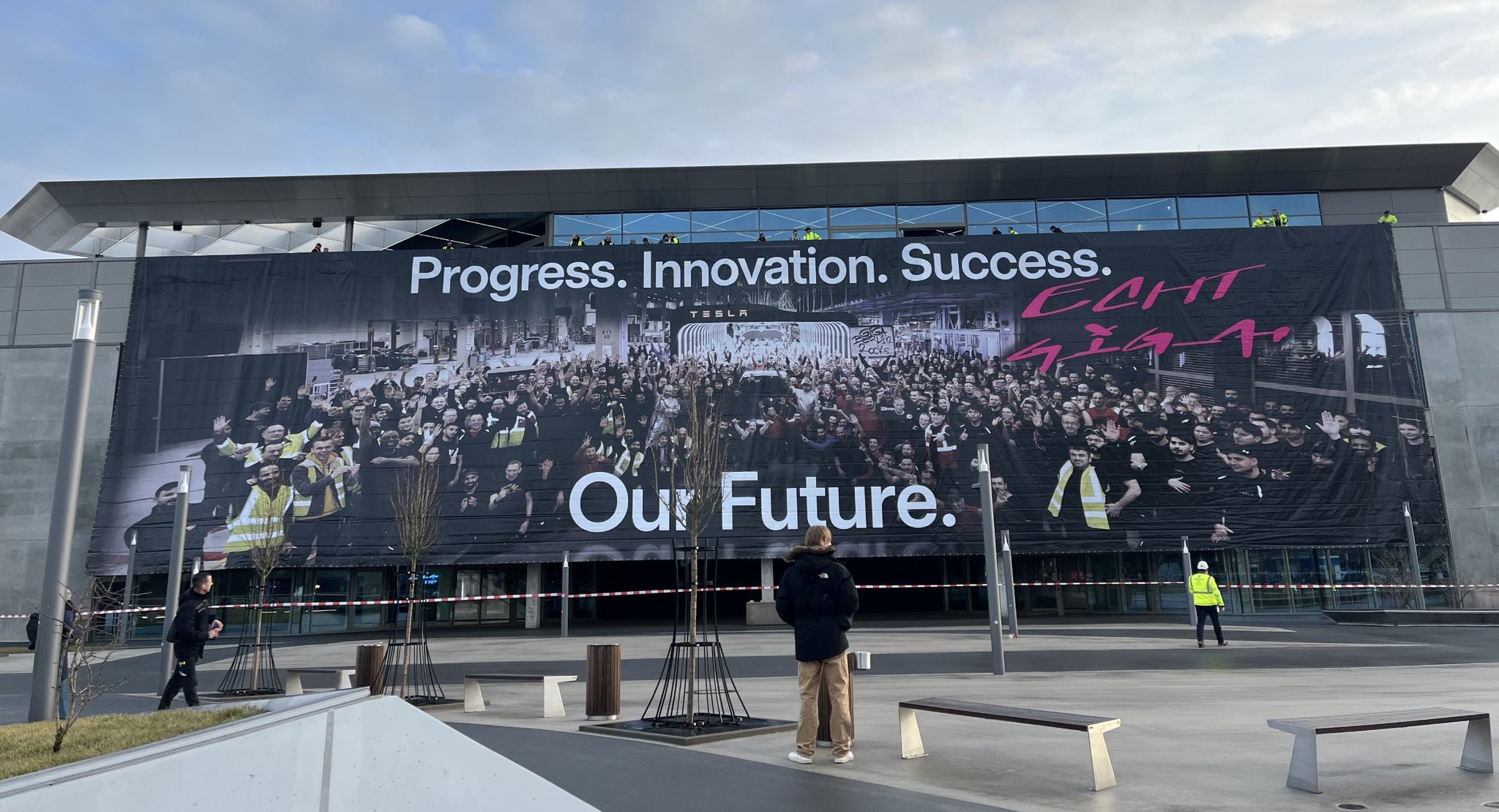News
SolarCity and Airbnb partner on a Tesla-like referral program

Tesla’s partnership with home-sharing service Airbnb, to install destination chargers in select host homes, have opened new doors of opportunity between the two companies. With one month left before Tesla and SolarCity shareholders vote on their proposed merger, SolarCity announced through a press release that it will be teaming up with Airbnb on an incentive program that offers a $1,000 discount for hosts to install a SolarCity solar system onto their homes.
Airbnb hosts and members: Install a solar generation system, and receive a $1000 discount through SolarCity.
SolarCity customers: You have a $100 travel credit waiting for you for future Airbnb bookings.
Airbnb’s Head of Global Policy Chris Lehane shared the company’s philosophy about pairing up with SolarCity. “We are indeed that climate friendly travel option that we believe guests are looking for,” he said. He added that their customers place a high value on lowering their environmental footprint, and Airbnb customers, in particular, are looking for places to stay that understand the importance of joining in with others who share the belief that clean renewable decentralized energy is necessary for the future success of the planet.
LeHane noted that Airbnb currently has already proven itself to be a leader in the environmental travel industry in the U.S.
- Airbnb has reduced water consumption by 4.2 billion liters vs. traditional accommodation options.
- Greenhouse gas reductions are nearly equivalent to what is generated by 560,000 cars on U.S. roads per year.
Airbnb is part of what is known as the “sharing economy,” which was inspired by a series of factors including the 2009 global economic crisis, millennial environmental focus, and the acceptance of social media as a serious information source. The numbers of people who now participate in the sharing economy are quite significant. With 100 million users, 640,000 hosts, and 2.3 million listings, Airbnb is the role model for other sharing economy businesses.
SolarCity, too, is an innovator that sets industry standards. Its business is a litany of renewable energy services such as solar energy products and services. It offers installation, ongoing monitoring, and repair services of solar energy systems in the U.S. and also provides services to homeowners, businesses, schools, non-profits and government organizations.
“The great majority of our customers go solar with absolutely no money out of pocket,” related SolarCity President of Global Sales Toby Corey. He explained that SolarCity surveys the business market, looking for programs and partnerships that allow it to alleviate expenditures for potential customers. A majority of SolarCity customers don’t put money down on installation financing plans, so the $1,000 credit from the Airbnb venture will be applied to their payback. That means the overall repayment period will be reduced.
SolarCity operates in 19 states currently, which means Airbnb members in any of those U.S. markets can take advantage of the program. With 300,000 customers, SolarCity can help Airbnb to harness the millennial market, a target audience for most sharing economy business and one that both SolarCity and Airbnb hope to call their own. As reported on Ecoprenteurist, millennials make up a significant portion of today’s target business audience. Millennials are the 2 billion people born between the early 1980s and 2000. 81% of millennials believe business has a key role to play in achieving the Sustainable Development Goals (SDGs), the guiding business practices shaped by world leaders from 193 nations as outcome from the COP21 summit in Paris.

Elon Musk
xAI’s Grok approved for Pentagon classified systems: report
Under the agreement, Grok can be deployed in systems handling classified intelligence analysis, weapons development, and battlefield operations.

Elon Musk’s xAI has signed an agreement with the United States Department of Defense (DoD) to allow Grok to be used in classified military systems.
Previously, Anthropic’s Claude had been the only AI system approved for the most sensitive military work, but a dispute over usage safeguards has reportedly prompted the Pentagon to broaden its options, as noted in a report from Axios.
Under the agreement, Grok can be deployed in systems handling classified intelligence analysis, weapons development, and battlefield operations.
The publication reported that xAI agreed to the Pentagon’s requirement that its technology be usable for “all lawful purposes,” a standard Anthropic has reportedly resisted due to alleged ethical restrictions tied to mass surveillance and autonomous weapons use.
Defense Secretary Pete Hegseth is scheduled to meet with Anthropic CEO Dario Amodei in what sources expect to be a tense meeting, with the publication hinting that the Pentagon could designate Anthropic a “supply chain risk” if the company does not lift its safeguards.
Axios stated that replacing Claude fully might be technically challenging even if xAI or other alternative AI systems take its place. That being said, other AI systems are already in use by the DoD.
Grok already operates in the Pentagon’s unclassified systems alongside Google’s Gemini and OpenAI’s ChatGPT. Google is reportedly close to an agreement that will result in Gemini being used for classified use, while OpenAI’s progress toward classified deployment is described as slower but still feasible.
The publication noted that the Pentagon continues talks with several AI companies as it prepares for potential changes in classified AI sourcing.
Elon Musk
Elon Musk denies Starlink’s price cuts are due to Amazon Kuiper
“This has nothing to do with Kuiper, we’re just trying to make Starlink more affordable to a broader audience,” Musk wrote in a post on X.

Elon Musk has pushed back on claims that Starlink’s recent price reductions are tied to Amazon’s Kuiper project.
In a post on X, Musk responded directly to a report suggesting that Starlink was cutting prices and offering free hardware to partners ahead of a planned IPO and increased competition from Kuiper.
“This has nothing to do with Kuiper, we’re just trying to make Starlink more affordable to a broader audience,” Musk wrote in a post on X. “The lower the cost, the more Starlink can be used by people who don’t have much money, especially in the developing world.”
The speculation originated from a post summarizing a report from The Information, which ran with the headline “SpaceX’s Starlink Makes Land Grab as Amazon Threat Looms.” The report stated that SpaceX is aggressively cutting prices and giving free hardware to distribution partners, which was interpreted as a reaction to Amazon’s Kuiper’s upcoming rollout and possible IPO.
In a way, Musk’s comments could be quite accurate considering Starlink’s current scale. The constellation currently has more than 9,700 satellites in operation today, making it by far the largest satellite broadband network in operation. It has also managed to grow its user base to 10 million active customers across more than 150 countries worldwide.
Amazon’s Kuiper, by comparison, has launched approximately 211 satellites to date, as per data from SatelliteMap.Space, some of which were launched by SpaceX’s Falcon 9 rocket. Starlink surpassed that number in early January 2020, during the early buildout of its first-generation network.
Lower pricing also aligns with Starlink’s broader expansion strategy. SpaceX continues to deploy satellites at a rapid pace using Falcon 9, and future launches aboard Starship are expected to significantly accelerate the constellation’s growth. A larger network improves capacity and global coverage, which can support a broader customer base.
In that context, price reductions can be viewed as a way to match expanding supply with growing demand. Musk’s companies have historically used aggressive pricing strategies to drive adoption at scale, particularly when vertical integration allows costs to decline over time.
News
Tesla Giga Berlin makes a statement of solidarity amid IG Metall conflict
The display comes as tensions between Tesla and IG Metall continue to escalate.

Tesla Giga Berlin is sending a strong message of solidarity amid its ongoing legal dispute with German union IG Metall.
In a post on social media platform X, Giga Berlin plant manager André Thierig shared an image of the facility’s lobby covered with a large banner that reads: “Progress. Innovation. Success.” He added that the slogan reflects what the facility has stood for since Day One.
“Our lobby at Giga Berlin covered in a huge banner these days. Progress. Innovation. Success – this is what we stand for since we started production in 2022 and how we will go into our future!” Thierig wrote in his post on X.
The display comes as tensions between Tesla and IG Metall continue to escalate.
The dispute began after Tesla accused a union representative of secretly recording a works council meeting at Giga Berlin. Tesla stated that it filed a criminal complaint after the alleged incident. Police later confirmed they had seized a computer belonging to an IG Metall member as part of their investigation.
“What has happened today at Giga Berlin is truly beyond words! An external union representative from IG Metall attended a works council meeting. For unknown reasons he recorded the internal meeting and was caught in action! We obviously called police and filed a criminal complaint!” Thierig wrote on X at the time.
IG Metall denied the accusation and characterized Tesla’s move as an election tactic ahead of upcoming works council elections. The union subsequently filed a defamation complaint against Thierig. Authorities later confirmed that an investigation had been opened in connection with the matter.
Giga Berlin began production in 2022 and has since become one of Tesla’s key European manufacturing hubs, producing the Model Y, the company’s best-selling vehicle. The facility has expanded capacity over the past years despite environmental protests, labor disputes, and regulatory scrutiny.








